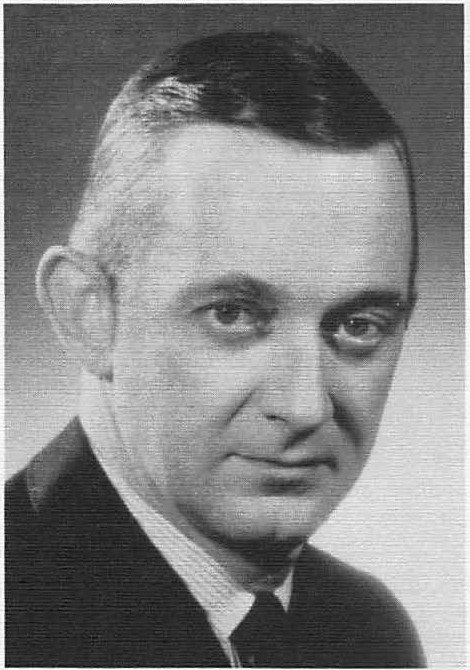A tribute to Dick Nelson and information about the Richard R. Nelson Memorial Lectures Endowment.

Dr. Richard R. Nelson, 1926-1991
A Distinguished Career
His humble beginnings in Austin, Minnesota, formed an enduring inner strength for Dick Nelson as he began his career by coaching high school athletics. In pursuit of this career and while taking courses at the University of Minnesota, he came to the attention of E.C. Stakman who, recognizing Dick's brilliance, not only converted him to plant pathology but also supported him financially when his fortunes fell to the point where continuing became impossible. These early experiences made a lasting mark on Dick and caused him to make a personal commitment to somehow repay with interest the investment that others made in him.
After completing his Ph.D. in 1954, Dick joined the United States Dept. of Agriculture (USDA) and began a career of research at North Carolina State University-Raleigh. The assignment was Helminthosporium, and his early studies led to the discovery of the sexual stage of this important plant pathogen. Later, through careful genetic manipulation, his studies resulted in an understanding of the behavior of fungal genetics for pathogenicity relative to host genetics for resistance. Continued studies by Dick, his colleagues, and his students caused the successful application of this knowledge to an understanding of parasitic fitness and its impact on stable host resistance. These studies, published in over 280 papers and book chapters, played a major role in our understanding of the Southern corn leaf blight epidemic of 1969-1971 and contributed significantly to halting this threat to world food supplies. Dick was a giant in the field and is so regarded by his peers. Through his work he has contributed a cohesive body of knowledge which, indeed, will serve as a "return on the investment" far into the future!
One of Dick's strongest desires, based upon his early experiences, was to participate in all aspects of graduate education. The opportunity to fulfill this desire figured largely in his coming to Penn State in 1966. Here he played a key role in the design of a program of graduate study in plant pathology which resulted in one of the finest such programs in the United States. His teaching of the most advanced course, often at home in his living room, both terrorized and inspired his students. His students now hold positions in every major land grant university in the United States. Perhaps no one can replace R.R. Nelson as a stimulating, demanding, contentious, but loving graduate teacher and adviser. The university gave him its highest appointment, Evan Pugh Professor, in 1974. He retired with emeritus rank in 1985.
The Richard R. Nelson Memorial Lectures
Because he felt strongly that he had not made an adequate "return," one of Dick's last wishes, to which his family and colleagues are committed, was that something be done in his name and to the extent possible in his style to continue to enhance graduate education in plant pathology at Penn State. The department has determined that this can be done best through the Richard R. Nelson Memorial Lectures. It is envisioned that a series of lectures and informal discussions will be held over the period of a week and presented by individuals outstanding in the field of host/parasite interactions. It is envisioned, further, that the thrust of the lectureship in its early years will be to relate his concern with the "population" to the current interest in molecular aspects of host/parasite relations.
An endowment fund for these purposes has been established. We would welcome and appreciate deeply your contribution to it. Your financial support of the Richard R. Nelson Memorial Lectures Endowment will act as a lasting memorial and tribute to our remarkable colleague. Your tax-deductible contribution can be made payable to the Pennsylvania State University, One Old Main, University Park, PA 16802.
Department of Plant Pathology and Environmental Microbiology
- Office 814-865-7448
- Fax 814-863-7217
Department of Plant Pathology and Environmental Microbiology
- Office 814-865-7448
- Fax 814-863-7217

